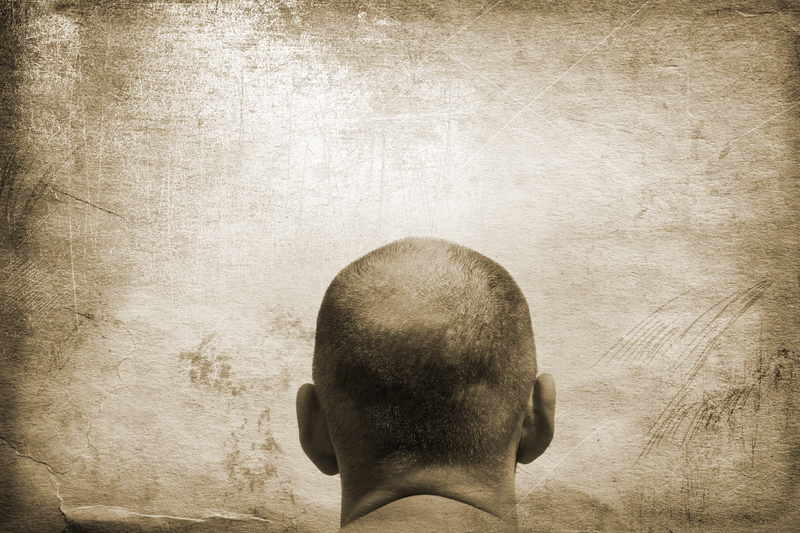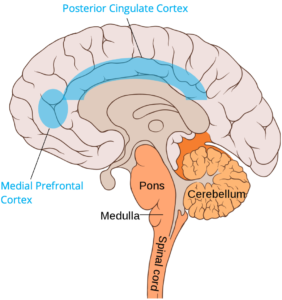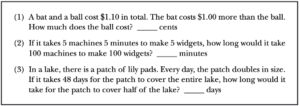Reading time: about 6 minutes
Self-reflection has currently been going through a revival and is seen as a gateway to all things good and great. But beware the distinction between cognitive reflection, self-reflection, and rumination.

Self-reflection has been promoted as a means to increasing personal performance and constant improvement. Though some may associate this with the current wave of mindfulness, this has been in the leadership literature for a long time. In 1987 Gene Hall reported that reflective practices were more predictive of more effective School Principals, correlating with strategic sense and initiation, these descriptions relate to still current buzzwords in leadership literature.
Indeed, in the HBF model of the evolution of human behaviour, self-reflection can be considered one of the latest additions to our arsenal of cognitive skills. Self-reflection falls inot the group of cognitive abilites that can be called mentalizing: boradly the ability to think about thinking and/or think about how others are thinking. And this is much more advanced than we may assume and a huge cognitive leap – it is therfore a particularly human ability. This ability is also tha bility that should also enable us to improve competence and skills – by thinking and rfelcting about these skills and how to improve them – and this is likely how it developed in human beings as a cognitive ability to improve abilities be that in fighting, strategizing, gathering food, or making flint for hunting.
So, all in, it sounds like a good thing and good thing to promote in business and for individuals looking to get the best out of themselves. The only problem is that the research paints a muddled picture and I’d also like to focus on the downsides – so that we can get more of the upsides.
I started proposing reflection as a method for continuous improvement from the mid 1990s, more related to concepts of sports performance which are constantly analysing and reflecting on ways and methods of improvement. In 2005 the Cognitive Reflection Test (CRT) was developed by Fredericks (see box below). Research from this show promising results and show that cognitive reflection could be more instructive than general intelligence. We noted in an earlier article that those who scored higher on the test were less susceptible to falling into classic thinking fallacies and traps, and better able to deal with bias. In fact, there are a bunch of benefits to cognitive reflection. However, cognitive reflection is not the same as self-reflection because it is not just thinking about oneself but cognitively engaging with problem solving and self.
What is happening in the brain?
 When we turn to the brain, we can see that the research points to the medial prefrontal cortex and posterior anterior cingulate cortex as being heavily involved in self-reflection. Research also points to the insula being involved which we discuss in the next issue – the insula is a region that integrates bodily feelings. This is in line with the well-known functions of the brain’s regions: prefrontal regions activating thought processes, the cingulate cortex, which is involved in attention and error detection, complemented by the insula for integrating bodily feelings.
When we turn to the brain, we can see that the research points to the medial prefrontal cortex and posterior anterior cingulate cortex as being heavily involved in self-reflection. Research also points to the insula being involved which we discuss in the next issue – the insula is a region that integrates bodily feelings. This is in line with the well-known functions of the brain’s regions: prefrontal regions activating thought processes, the cingulate cortex, which is involved in attention and error detection, complemented by the insula for integrating bodily feelings.
So far so good – an interesting digression is that of political viewpoints with some research in the USA showing that conservatives are more intuitive, following instinctive gut feelings, particularly in social contexts, and liberals are more reflective. What was more worrying about one study documenting this, is that they commented that these are more resistant to manipulation, i.e. change, than previously assumed.
This also falls in line with our proposal that self-reflection is as much a personality trait as an ability, with some people having more propensity or natural reflective abilities than others. Obviously, this can be worked on, an dimproved as any skills can – we can also build reflective practices built into your workday to reap the benefits.
This concept of self-refection being as much a personality trait as an ability to be developed is supported by other factors and the downsides to self-reflection. We spoke about the medial prefrontal cortex as being involved in self-reflection, but this area is also strongly associated with depression. The medial prefrontal cortex was shown to exert more influence on other parts of the brain in those with depressive symptoms by researchers in 2017. This in turn is related to self-appraisal and also rumination that can be considered the negative sibling of self-reflection. The same circuits therefore that enable insight and self-improvement also activate self-critical thoughts and rumination – sitting with negative thoughts and playing them over again and again.
This in turn brings us back to the more recent movement of self-reflection, positive psychology and strategies such as gratitude. Notable is also that though many positive effects have been documented with mediation. But less reported on is that precisely these negative responses, such as an increaase in rumination, has also been recorded in research into mediation. This cantherefore lead to an increase in depressive symptoms (this depends on the context and mediation methods used). This downside to mediation is rarely reported in the popular literature. But the concept of gratitude, often a comon meditation theme, and writing gratitude diaries, things we are thankful for, has been shown to be effective for those who are susceptible to negative self-rumination.
It should be noted that these processes are interrelated, but that self-reflection and cognitive reflection are slightly different beasts. Self-reflection is the natural self-reflective process of analysing ourselves, whereas cognitive reflection is a conscious activity to reflect on what has happened, and to manage intuitive and reflexive cognitive responses which improves decision making and business processes. There are strong overlaps and those who are high on self-reflection will be able to engage easily in cognitive reflection but may drift into critical self-appraisal and rumination.
So, to summarise the differences because these are important
- Self-reflection, also called metacognitive reflection, ability to reflect on oneself and introspect
- Cognitive reflection, ability to manage and inhibit impulsive intuitive thought processes
- Reflective leadership, practice of reflecting on leadership practices and keep focused on how practices are effective or not and particularly of larger strategic initiatives
- Rumination, the act of dwelling on negative self-referential thoughts
So where does this leave us? Cognitive reflection and reflective leadership have a bunch of research to back them up showing generally positive outcomes and therefore are of interest to anyone looking to improve their effectiveness and performance on the job (and in all areas of life).
So top tips are:
- Take time each day to reflect on what has happened and what you need to do to achieve your big goals
- Make sure you align your actions to your bigger strategic goals
- Practice unbiased self-reflection
- Note when you are ruminating and revert to unbiased reasoning
- If you are susceptible to self-criticism, consider a gratitude diary
We do know that these will in part be guided by natural propensity, personality, to engage in self-reflection and cognitive reflection. But we do all have a prefrontal cortex and can exert control over our behaviours and thought processes. The prefrontal cortex is fresh first thing in the morning before the day’s activities have tired you out, so the final tip is to engage in strategic reflection first thing in the morning before you roll your sleeves up and get stuck into your day’s work●
The Cognitive Reflection Test
The first cognitive reflection test is a short three-item test.

These items have quick intuitive response that are incorrect. Therefore, to get the right answer one must first be able to identify and reject the intuitive response. What’s more, confidence in having given the correct response was similar between those answering correctly and incorrectly. By the way, less that 20% of participants get all responses correct – this testing is often done with university students in the US. Note also that increased time pressure and disturbances dramatically reduced correct responses.
A longer version of the CRT has been developed by Toplak et al. (2014)
Overconfidently underthinking: narcissism negatively predicts cognitive reflection
This is the title of a 2020 paper relating cognitive reflection to other personality traits. This is well worth a read, but they measure multiple forms of cognition, reflection, various forms of narcissism, impulsiveness, and overconfidence. The big take away though was that those high in grandiose narcissism, claim to enjoy engaging in cognitive tasks, but are massively high on overconfidence, and show lower reflective abilities and insight.
So those arrogant individuals who have a high regard for themselves and their superiority will tend to fall into thinking traps more often but be overconfident in their abilities to avoid them and be unable to acknowledge and think through how they could have made a better decision. Many people in business reading this will be slowly nodding their heads having come across many people like this…
Littrell, S., Fugelsang, J., and Risko, E. F. (2020). Overconfidently underthinking: narcissism negatively predicts cognitive reflection. Think. Reason. doi:10.1080/13546783.2019.1633404.
References
Education
Hall, G. E. (1987). Strategic Sense: The Key to Reflective Leadership in School Principals. ERIC.
Osterman, K. F. (1990). Reflective Practice: A New Agenda for Education. Educ. Urban Soc. doi:10.1177/0013124590022002002.
Cognitive Reflection
Biaaek, M. (2016). What Color are the Lilies? Forced Reflection Boosts Performance in the Cognitive Reflection Test. SSRN Electron. J. doi:10.2139/ssrn.2832142.
Deppe, K. D., Gonzalez, F. J., Neiman, J. L., Jacobs, C., Pahlke, J., Smith, K. B., et al. (2015). Reflective liberals and intuitive conservatives: A look at the cognitive reflection test and ideology. Judgm. Decis. Mak.
Frederick, S. (2005). Cognitive Reflection and Decision Making. J. Econ. Perspect. 19, 25–42.
Hoppe, E. I., and Kusterer, D. J. (2011). Behavioral biases and cognitive reflection. Econ. Lett. doi:10.1016/j.econlet.2010.11.015.
Salgado, Otero, and Moscoso (2019). Cognitive Reflection and General Mental Ability as Predictors of Job Performance. Sustainability 11, 6498. doi:10.3390/su11226498.
Primi, C., Morsanyi, K., Chiesi, F., Donati, M. A., and Hamilton, J. (2016). The Development and Testing of a New Version of the Cognitive Reflection Test Applying Item Response Theory (IRT). J. Behav. Decis. Mak. doi:10.1002/bdm.1883.
Szaszi, B., Szollosi, A., Palfi, B., and Aczel, B. (2017). The cognitive reflection test revisited: exploring the ways individuals solve the test. Think. Reason. doi:10.1080/13546783.2017.1292954.
Toplak, M. E., West, R. F., and Stanovich, K. E. (2011). The Cognitive Reflection Test as a predictor of performance on heuristics-and-biases tasks. Mem. Cogn. doi:10.3758/s13421-011-0104-1.
Toplak, M. E., West, R. F., and Stanovich, K. E. (2014). Assessing miserly information processing: An expansion of the Cognitive Reflection Test. Think. Reason. doi:10.1080/13546783.2013.844729.
Neural correlates of reflection
Herwig, U., Kaffenberger, T., Schell, C., Jäncke, L., and Brühl, A. B. (2012). Neural activity associated with self-reflection. BMC Neurosci. 13, 52.
Johnson, S. C., Baxter, L. C., Wilder, L. S., Pipe, J. G., Heiserman, J. E., and Prigatano, G. P. (2002). Neural correlates of self-reflection. Brain. doi:10.1093/brain/awf181.
Modinos, G., Ormel, J., and Aleman, A. (2009). Activation of anterior insula during self-reflection. PLoS One. doi:10.1371/journal.pone.0004618.
Zelazo, P. D. (2015). Executive function: Reflection, iterative reprocessing, complexity, and the developing brain. Dev. Rev. doi:10.1016/j.dr.2015.07.001.
Rumination / depression
Cooney, R. E., Joormann, J., Eugène, F., Dennis, E. L., and Gotlib, I. H. (2010). Neural correlates of rumination in depression. Cogn. Affect. Behav. Neurosci. doi:10.3758/CABN.10.4.470.
Johnson, M. K., Nolen-Hoeksema, S., Mitchell, K. J., and Levin, Y. (2009). Medial cortex activity, self-reflection and depression. Soc. Cogn. Affect. Neurosci. 4, 313–327.
Modinos, G., Renken, R., Ormel, J., and Aleman, A. (2011). Self-reflection and the psychosis-prone brain: an fMRI study. Neuropsychology 25, 295–305.
And again: Overconfidently underthinking: narcissism negatively predicts cognitive reflection
This is the title of a 2020 paper relating cognitive reflection to other personality traits. This is well worth a read, but they measure multiple forms of cognition, reflection, various forms of narcissism, impulsiveness, and overconfidence. The big take away though was that those high in grandiose narcissism, claim to enjoy engaging in cognitive tasks, but are massively high on overconfidence, and show lower reflective abilities and insight.
So those arrogant individuals who have a high regard for themselves and their superiority will tend to fall into thinking traps more often but be overconfident in their abilities to avoid them and be unable to acknowledge and think through how they could have made a better decision. Many people in business reading this will be slowly nodding their heads having come across many people like this…
Littrell, S., Fugelsang, J., and Risko, E. F. (2020). Overconfidently underthinking: narcissism negatively predicts cognitive reflection. Think. Reason. doi:10.1080/13546783.2019.1633404.
